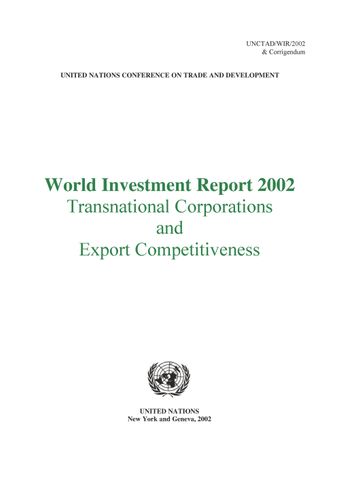- Home
- Books
- World Investment Report 2002
- Chapter
Introduction

- Author: United Nations Conference on Trade and Development
- Main Title: World Investment Report 2002 , pp 117-120
- Publication Date: October 2006
- DOI: https://doi.org/10.18356/cc19d994-en
- Language: English
One of the contributions TNCs can make to host economies in the developing world is to enhance their export competitiveness. Export competitiveness has many facets, the most obvious implying higher exports. But it also means diversifying the export basket, sustaining higher rates of export growth over time, upgrading the technological and skill content of export activity, and expanding the base of domestic firms able to compete globally; thus, competitiveness is sustained and it is generally accompanied by rising incomes. TNCs can help raise competitiveness in developing countries in some or all of these ways, but tapping their potential is not easy. Attracting export-oriented TNC activities is itself an intensely competitive business, and even some of the countries that have succeeded may find it difficult to sustain competitiveness as their wages rise and market conditions change. Coherent and consistent policy support is essential to ensure that attracting export-oriented TNC activities are embedded in a broader national development strategy. This is particularly important as there is a possible tension between the principal objective of Governments – which is to maximize national welfare – and the principal objective of TNCs – which is to maximize their global corporate competitiveness. Export competitiveness is important and challenging, but it should be seen not as an end in itself but as a means to an end – which is development.
-
From This Site
/content/books/9789211559286s007-c001dcterms_title,dcterms_subject,pub_keyword-contentType:Journal -contentType:Contributor -contentType:Concept -contentType:Institution105

